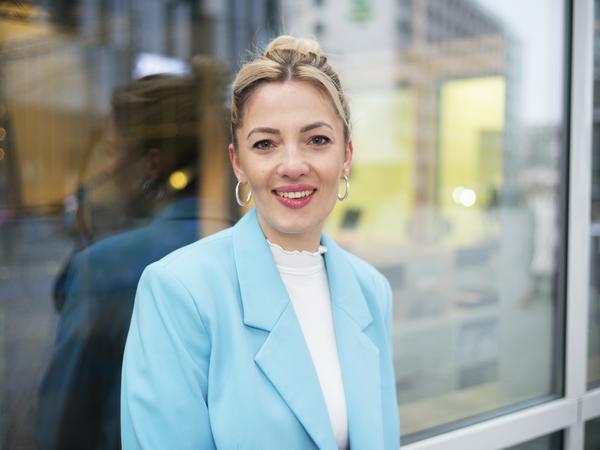She cried tears of joy when she received the diagnosis of her condition: ADHD in adulthood. Angelina Boerger felt great relief when she finally knew where this feeling of being different came from: Less resilient, less stressed, on the other hand sometimes so focused that she forgot everything around her. The cause is her attention deficit hyperactivity disorder.
Depending on its severity and intensity, ADHD is classified as a disease, mental disorder or abnormality. It was and is mainly diagnosed in children and adolescents, mostly in boys. According to a study by the Robert Koch Institute, ADHD occurs in 4.4 percent of children and adolescents in Germany. It is one of the most common mental disorders in childhood and adolescence.
Especially since the affected boys are quickly considered difficult. The traditional term “Zappelphilipp syndrome” gives an idea of what was and is meant: children full of restlessness, hardly able to concentrate, their behavior conspicuous, at home, in the day care center, at school, in the sports club. They are quickly seen as a nuisance. Because they are used to being a nuisance, attracting attention and not fitting in from an early age, they confirm their reputation again and again.
Angelina Boerger, 31 years old, journalist from Aachen, reports on her joy about the ADHD diagnosis at the beginning of her book “Kirmes im Kopf”. The online retailer Amazon advertises the book with the reference “Bestseller” in the category “Behavioural Disorders”. Boerger would like to do away with this kind of cliché, with such judgments. Even if ADHD is sometimes not easy for her and for others to bear – she does not want to get rid of it.
Up to 4.96 million
Adult could be affected by ADHD in Germany
She got her diagnosis after school with abnormalities, high school, a degree and a career as a freelance journalist. The diagnosis, made by a psychologist specializing in ADHD in adults, finally explained her feeling of functioning differently than others, sometimes appearing less resilient.
“This is the proof,” she writes about the moment she gets the diagnosis, “it’s a satisfaction, an opportunity, a task, the answer to many of your questions”.
One of the tasks she set herself was to write her book. Because ADHD in adulthood is a phenomenon that is little talked about.
The website of the Federal Ministry of Health shows how underestimated the phenomenon is. There are only indications of ADHD in adults in the linked “Infoportal ADHS”. Accordingly, 2.5 to 4.7 percent of adults are affected by the attention disorder and associated phenomena such as emotional restlessness and instability. So out of 84.3 million people in this country, up to 4.96 million people would be dealing with ADHD.
During the interview in Berlin, Angelina Boerger seems as if she has the side effects of ADHD under control. She is punctual, seems perfectly prepared and open to a conversation about her inner workings.

Ms. Boerger, how does ADHD affect your everyday life?
It’s there all the time, it’s not switched on and off. Everything about self-management, time, structure, order. It can be that I think: I have plenty of time, I can do everything – and still come too late. Suddenly three hours are up, I got lost in some details.
Suddenly eight hours have passed. you didn’t eat You haven’t been to the bathroom, it’s dark, your energy level drops from a hundred to zero.
Angelina BoergerADHD sufferers
How is this affecting your work?
For example through procrastination. This is different than procrastination. Procrastination has an almost pathological character. It can have negative consequences – and yet you do it. This often makes you angry with yourself. You ask yourself: How can you be so stupid? On the other hand: the hyper focus. A blatant focus on one thing. Sometimes one speaks in this context of “superpower”. She has a dark side.
Please explain.
You have this tunnel vision, you are completely concentrated. Suddenly eight hours have passed. you didn’t eat You haven’t been to the bathroom, it’s dark, your energy level drops from a hundred to zero. This can happen at work, but also when I’m cleaning up a shelf in the closet.
But: If you are so focused, is it also on your work, on writing, for example?
For me it’s a workaholic. I would work 24/7 if I could – because I am so focused on this ADHD issue. Because I always want to learn more. Because I see: This could help someone. How does science see it? Then I have nothing else on my mind.
A medical theory is that four important neurotransmitters are present in the brains of people with ADHD to a lesser extent than others – or are broken down more quickly. This has consequences for attention, dealing with stress and impulse control. Another thesis says that a kind of filter system in the brain of ADHD sufferers is more permeable than in other people. You have an unfiltered all-round attention – and are stressed more quickly.
Is there one side effect that annoys you more than anything else?
The external effect: always comes too late. things are not important to her. Is inattentive to other people. That is so mean. I don’t want to hurt anyone. think everything. Any emotion. And that’s how it turns out in the end. This is frustrating.
Do you see ADHD as a mental disorder?
There are people who speak of a developmental disorder. Or from a behavioral disorder – which it definitely isn’t. This concept of illness comes up again and again. He is rejected in the community, if only because “disease” suggests that ADHD would be “curable”. But it’s a disturbance in brain metabolism, if you want to look at it completely biochemically. There is also this sociological concept, as we look at it, this deficit. And “suffering” – that implies: It would be so good if we could get rid of it! Of course there is suffering. You can’t downplay that. But the question is: How much part does the system in which we live have? Society. The people who look at ADHD – and say: That’s not normal, that’s pathological, that’s not right. A huge factor!
As against the term “disease” (the Federal Ministry of Health also defines ADHD as such), Angelina Boerger also opposes the term “mental disorder”. She would like ADHD to be seen as an identity feature.

One of the peculiarities of the phenomenon is that when people with ADHD are fascinated by something or want to focus on something, their focus is hard to shake. Angelina Boerger has made a virtue out of what she has long considered a necessity. She provides information about her topic on a wide variety of channels, from Instagram to YouTube. In her book, she puts forward the thesis that the legal and medical definition of “disease” does not apply to ADHD. Because an illness is “curable”.
However, ADHD cannot be “cured”. It is possible to adjust children’s ability to concentrate to that of their classmates by using certain medications. Because ADHD is also associated with difficulties in emotional self-regulation for some, psychotherapy can help.
What is dangerous for someone with ADHD?
Having it and not being diagnosed. And when you have the diagnosis – and suffering – but don’t get help. This can have various reasons, for example that the parents do not want it.
The number of suicide attempts is very high in people with ADHD.
Angelina BoergerAffected
Why this?
Because they fear the stigma. I know of cases where ADHD in children was ignored. Until the child got into a crisis.
What are the other dangers?
There are these numbers, estimates. For example, that people with ADHD between the ages of eleven and thirteen can expect to live less. Through different things, starting with accidents, because of bad driving behavior, drifting away from the attention “I can still make it through the traffic light”… But also because people simply suffer mentally and physically. The number of suicide attempts is very high in people with ADHD.
The ADHS Advice website lists many accompanying phenomena and diseases, from sleep disorders and borderline syndrome to depression, which affect quality of life as well as life expectancy. If you delve into this list, you will quickly understand how important the diagnosis is. So that you can get help.
The multi-option society we live in can also overwhelm you. And paralyze.
Angelina BoergerADHD sufferers
What should a society look like in which people with ADHD don’t have any problems?
I think it’s about participation. To be able to help shape things. It’s so paradoxical: we have so much freedom. We are richer than ever, getting older, healthier. But on the other hand, there is great pressure to perform due to this multi-option. You feel so overwhelmed by everything.
What do you mean?
The multi-option society we live in, with its many options, can also overwhelm you. And paralyze. With every decision you ask yourself: Does this suit me now? Is that wrong? where to take me We are freer than ever. At the same time, everything is evaluated. In the end you only have one option. There is only this one pattern. If you don’t fit in there, you’ve lost. Unless you have the strength to fight your way out of this and say, I’m swimming against the tide now. I just wish there was more acceptance. The basis for this is: knowledge. We need to understand the complexity behind ADHD.
What are your thoughts on ADHD medication?
I regularly take a stimulant, an amphetamine derivative. I’m fine with that.
Isn’t there a danger, especially children, that they will get used to taking a solution in tablet form to counteract an apparent deficit?
I think we have to ask ourselves: why does a person have to take something to keep up? Why does everyone have to do the same? The other is the chemical level. There is no dependency there. The active ingredients are released throughout the day. They are depleted at the end of the day. In this sense there is no dependence as there is with other substances.
Is it possible to manage and deal with yourself with ADHD in such a way that you can get by without medication?
Would you ask a diabetic if he could manage without insulin? It’s about something biochemical working differently in the brain. The stimulants compensate for that. Where is the problem?
Do you find your thinking, your feelings exhausting?
Very rarely. Rather the opposite. i love my head Fair stop. Who doesn’t like going to the fair?
